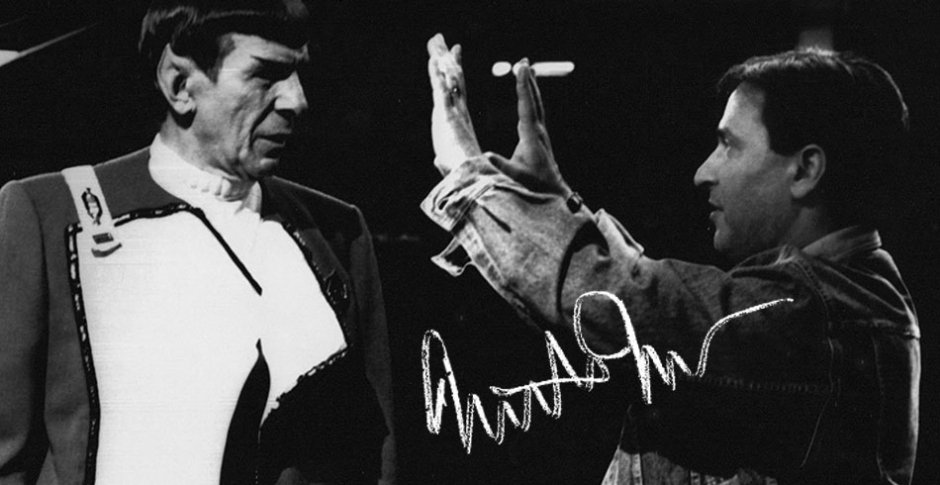Nicholas Meyer - My definition of cinema is to make something visible when it is invisible
Written by Eva Csölleová, Vítek FormánekNicholas Meyer was born in 1945 in New York City.The first film he saw was “The Beggar´s Opera” starring Laurence Olivier and he became a life- long film fan. At the age of 13, his preparation for filmmaking began with the help of his father, when he made 70 minute long film “Around the World in 80 days “, with his 8 mm camera. He studied filmmaking at the University of Iowa, from which he graduated in 1964.After return from Europe he became an associate publicist at Paramount Pictures. For the advance money he got for his first book The Love Story Story he moved to Hollywood where he started writing screenplays and novels. In 1975 he wrote a screenplay for The Seven-per-cent-solution, for which he was nominated for Academy Award for best Screenplay Adaptation. In 1979 he directed Time after Time, which became one of the most popular movies of that year. In 1982 he directed Star Trek II: The Wrath of Khan. Five years later, in 1984 he directed The Day After for ABC television. It was as movie on the impact of nuclear war and was the most watched TV film in history. It was nominated for seventeen Emmys by TV academy. He later co-authored the screenplay of Star Trek IV-The Voyage Home and in 1991 he co-wrote and directed Star Trek VI-The Undiscovered Country. His name is also signed as screenwriter for well acclaimed film Sommersby. We really wanted to make interview with such interesting man so thanks to help of our friend Pancho Kohner and Mr.Meyer´s agent Alan Gasmer we got in touch with director himself within 24 hours and he kindly replied our questions.
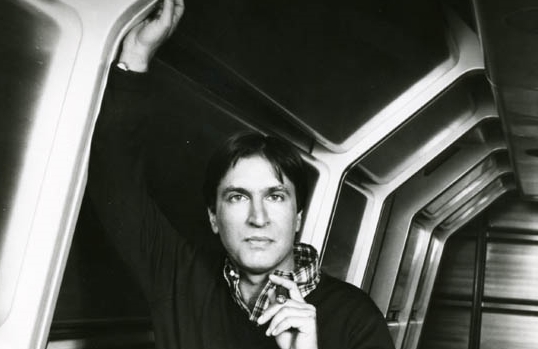
Could you tell us bit more about your 70 minute version of Around the World in 80 days? What kind of film was it and how did you make it at the age of 13 with no film knowledge?
Around the World in 80 Days was conceived by me after seeing the Mike Todd film (1956) on my 13th birthday. Always a Jules Verne fan, there was a note in the movie program that said, “You too can make a motion picture; no previous experience necessary.” This was meant to explain Mike Todd, who had never produced a film, but the sarcasm was lost on this kid.I took the advice literally and asked my father, who owned an 8mm wind up Revere home movie camera to help. My father, also a Jules Verne fan, fell in with my scheme and we spent the next five years on school holidays and summer vacations shooting our all kids’ version of Verne’s novel, splicing in home movie footage we’d shot on European family trips, etc. It was a terrific learning experience and the film is charming. We made many mistakes, of course but I learned a lot, it was learning by doing and had so much fun with my father. We shot out of sequence, so I grow bigger and smaller playing the role of Phileas Fogg.
When you sold the rights for The Seven Percent Solution unless you will be able to direct it, were you confident you can make it or you weren´t that confident but saw it as a good chance how to get to Hollywood (sneak in) and just took a risk and it paid off?
I did not sell the rights to my novel, The Seven-Per-Cent Solution, with the proviso that I direct it. I did not direct the film; Herb Ross did. I sold the movie rights with the proviso that I write the screenplay and this I obtained. As I had already written a few television films, I had some plausibility as a screen writer, which probably helped. I am happy to say that my screenplay was nominated for Academy Award.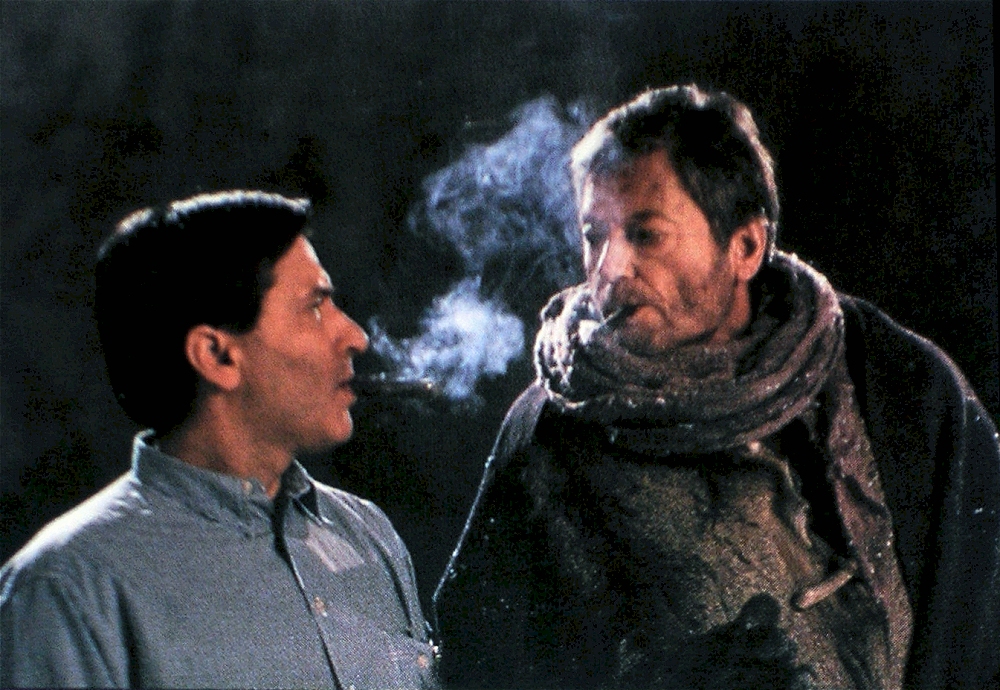
Your TV film The Day After was made very realistically. Do you think if it was made these days with all digital tricks, it would have spoilt its credibility and urgency? 55 million viewers showed that none of them want the war, do you think it helped persuade Ronald Reagan to find the way how to stop nuclear armament races?
The special FX for The Day After were certainly more primitive than they would be if made with digital FX today, but the point was not to make a “ disaster film” where destroying New York or something else would look like fun. Nuclear war is so terrifying that nobody likes to think about it. I had to make a film where there would be nothing to talk about EXCEPT THE SUBJECT.I did not want great acting, great cinematography or wonderful music, nothing that people would discuss instead of nuclear annihilation. That would include special FX. If they were so great people wound up talking about them, again, they would miss the point. Incidentally, THE DAY AFTER was viewed by 100 million people in one night, not 55 million. I know for a fact that it changed Ronald Reagan’s mind about a “winnable” nuclear war because a) he wrote that it did in his memoir an b) his biographer, Edmund Morris, was living in the White House when Reagan saw the film and noted Reagan’s reaction both in person and in his biography. (Reagan told Dr. Helen Caldicott that the missiles could always be recalled. He was astonished when she informed him this was not true). It would definitely be crucial to remake the film now as the current president is a moron. Since he doesn’t know how to read, maybe one (motion) picture is worth a thousand words. Many politicians – including some on Castro’s staff – said the Cuban Missile crisis wasn’t real to them until they saw the missiles taking off in my film.
We were told by one director that script is written in one maybe two years and film is soon forgotten. Ibsen wrote his plays in three weeks and they stood the test of time. How long do you write your scripts since your films 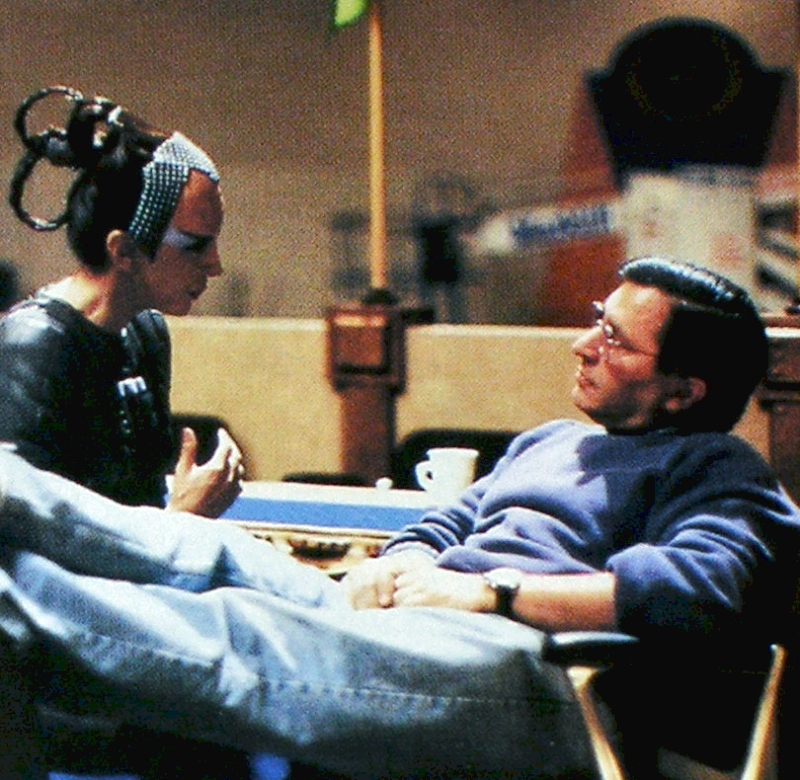 weren´t forgotten and have strong structure and do you read many books to sharpen your writing abilities?
weren´t forgotten and have strong structure and do you read many books to sharpen your writing abilities?
I write scripts the best way I know how. The best art seems to stand the test of time. Lesser work disappears. I can´t explain what lasts or what doesn´t. For me the structure is the most important in a drama. To get underway, I must have conception how things are supposed to work. Once I know where to start and where to go in the end, the things in the middle will take care of themselves. Details seem to be less important to me. All I do every day is read books all day long. Every kind of book.
Your wrote many various topics-Fatal Attraction, Sommersby, Time after Time, Star Trek. Are you just interested in so many different things or you basically like human beings and put them together as on chess board (Time after Time, The Seven Percent Solution), change combinations, time, dimensions and see how it works and it DOES?
I am interested in all sorts of stories about people trying to solve the problems that confront them. I don’t care if they are modern or period, sci-fi or political, funny or sad. All I want is a GOOD story. Make me laugh or make me cry. Maybe make me think when it’s over, but laugh or cry FIRST. I define a “good story” as one, that, after you hear it, you understand why I wanted to tell it. You know it kind of refresh me to change the topics and styles. Just doing different things keeps me interested. When I begin writing I ask myself” What is the first thing I wanna see in the film? What is the first image.” Once I get it I ask myself “ What do I wanna see next?” and it goes on and keeping in mind as these images are unfolding the over- arching structure that you had in your head. When I adapt a book I take my note pad and read page one and write down sentence or two and go to following page and do it again. At the end of the day I go to my computer and transcribe my notes and also things that are in my memory of the book.
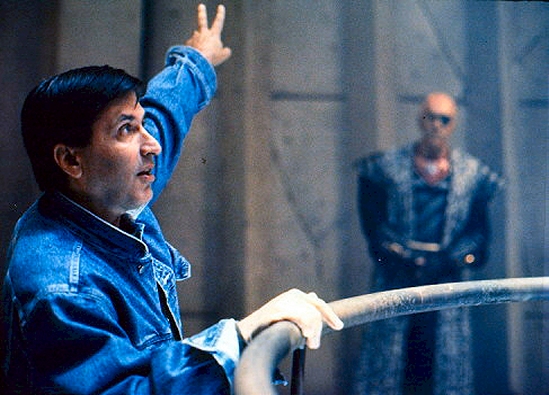 Do you prefer writing to directing, since you wrote more stuff than directed or just wasn´t interested in directing those particular films. Why are you uncredited in Fatal Attraction?
Do you prefer writing to directing, since you wrote more stuff than directed or just wasn´t interested in directing those particular films. Why are you uncredited in Fatal Attraction?
The Writers Guild decides who gets credit for writing screen and teleplays. The Guild did not choose to award me a writing credit on Fatal Attraction. The script was originally and largely written by James Dearden. I stopped directing after my wife died in 1993 and I had to raise two children, there was no other reason. Writing allowed me to stay home and be with them. I am lucky I could earn a living that way. Writing and directing are different disciplines. Writing is usually (for me) solitary and I am limited only by my talent and my imagination. I answer to no one. Directing you do as part of a team and you are dependent on endless variables – budget, weather, egos, world events, etc. Each has its own rewards (films are like souffles-they either rise or they don´t).After I write, I am desperate for company. After I direct, I long for peace and quiet. Ideally, I am the best interpreter of my own work.
Film studios are no longer making what I consider movies
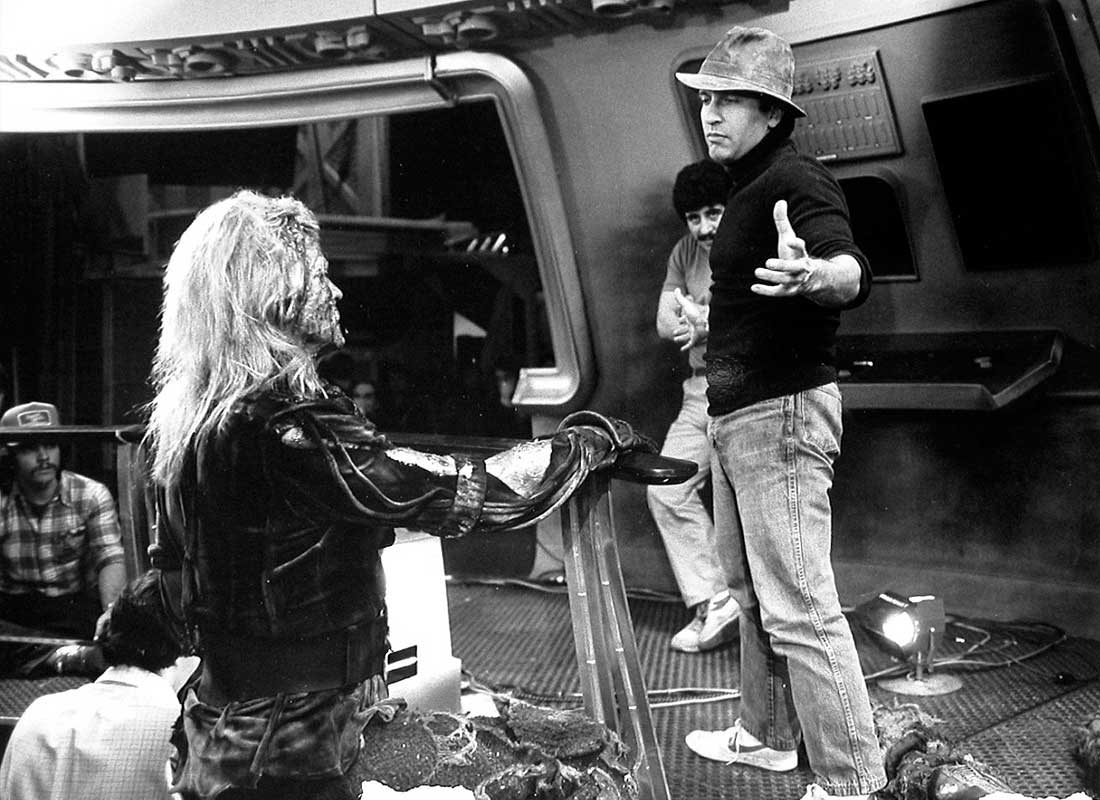
After directing first films, did it have some influence on the way how you wrote scripts?
I think I became much better in understanding how it works between picture and words. Unlike some filmmakers today, I believe that words have enormous importance but you have to be careful how to use them because what work on stage doesn´t have to work in same form on the screen.
Many top Hollywood stars returned to TV. Do you think it gives them more artistic and creative space than Hollywood studios?
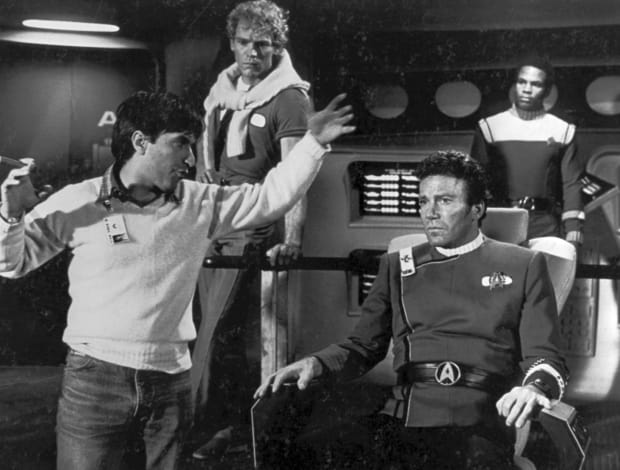 With few notable exceptions, film studios are no longer making what I consider movies. They only make enormous films that must play in many different countries and language is less important than special FX. Instead they are making windup toys and “franchises”, designed not to offend any dictatorships, so they can play everywhere (including America, which threatens to become another one). Comic books and escapist fantasies are best for these sorts of movies. Since we live in a chaotic world, a hairsbreadth away from catastrophe at all times, many people seem desperate to escape reality. I must say that I am very disappointed where movies are heading now. Studios are very frightened to make movies about people and make movies that have a narrative. It seems that studios are afraid or real stories. It is as though you are putting demands on an audience that is so attention challenged, that no shot can last more than few seconds and story doesn´t have any real content. Maybe it is because public is so frightened these days cos the world we live in is terrifying so maybe nobody wants to see real people struggling. In good old days studios used to shoot various films so the audience could go to movies and watch different things and topics. Once the marketing people took over the functions of what movie got made, then it just became what movies you can market. So movies made these days, only seem to fit into specific genres. It seems to me to be self-fulfilling prophecy of lowering expectations and playing to the lowest common denominator, which makes it not a very interesting experience to go movie. If you look at multiplexes they all seem to be playing the same movie and when quality movies are showed at long last, audience don´t come and watch them.
With few notable exceptions, film studios are no longer making what I consider movies. They only make enormous films that must play in many different countries and language is less important than special FX. Instead they are making windup toys and “franchises”, designed not to offend any dictatorships, so they can play everywhere (including America, which threatens to become another one). Comic books and escapist fantasies are best for these sorts of movies. Since we live in a chaotic world, a hairsbreadth away from catastrophe at all times, many people seem desperate to escape reality. I must say that I am very disappointed where movies are heading now. Studios are very frightened to make movies about people and make movies that have a narrative. It seems that studios are afraid or real stories. It is as though you are putting demands on an audience that is so attention challenged, that no shot can last more than few seconds and story doesn´t have any real content. Maybe it is because public is so frightened these days cos the world we live in is terrifying so maybe nobody wants to see real people struggling. In good old days studios used to shoot various films so the audience could go to movies and watch different things and topics. Once the marketing people took over the functions of what movie got made, then it just became what movies you can market. So movies made these days, only seem to fit into specific genres. It seems to me to be self-fulfilling prophecy of lowering expectations and playing to the lowest common denominator, which makes it not a very interesting experience to go movie. If you look at multiplexes they all seem to be playing the same movie and when quality movies are showed at long last, audience don´t come and watch them.
Television on the other hand - and streaming and cable TV in particular – seem to be where all the interesting work that revolves around human beings trying to deal and survive in the real world is happening. Actors as well as other creative people are drawn to this format because it is precisely here that innovation, daring and experimentation is taking place. (3D and VR in my book don’t count as experimentation).I will never love TV the way that I love movies-sitting with an audience and watching something that is literally and figuratively larger than life. But it cannot be denied that these days television is much more creative and interesting than movies that are all special FX and no content.
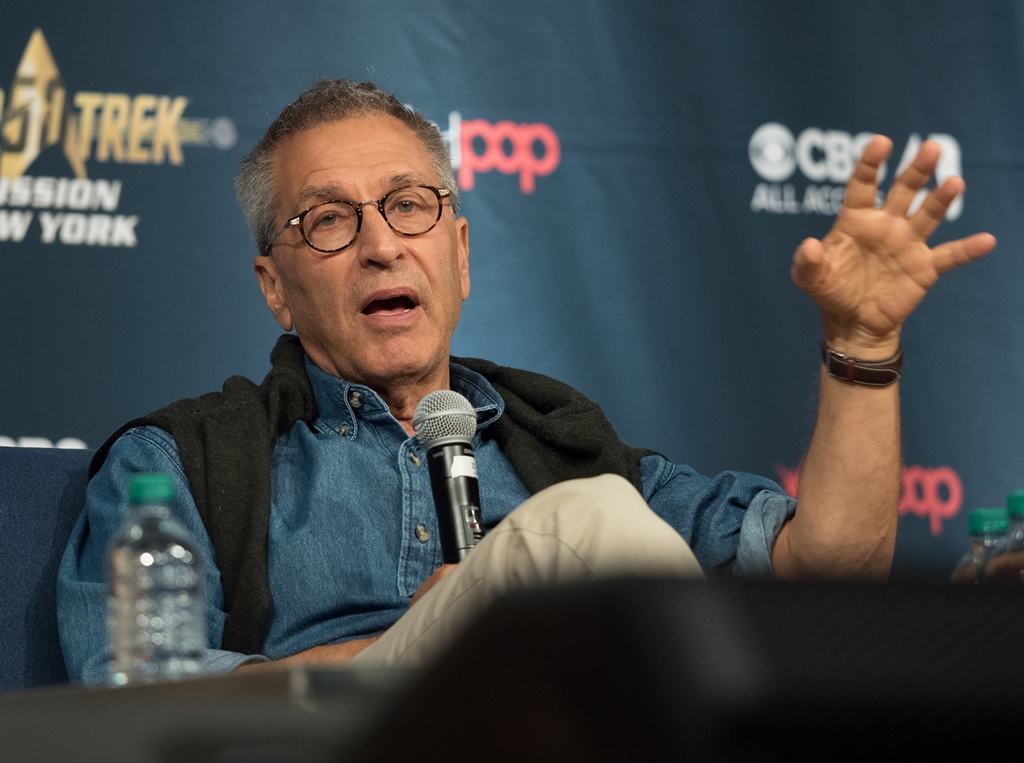 Your Star Trek became a cult, Star Wars have new and new sequels made. Do you think people worship them cos they like to dream about different world to escape from current one which is in very chaotic state?
Your Star Trek became a cult, Star Wars have new and new sequels made. Do you think people worship them cos they like to dream about different world to escape from current one which is in very chaotic state?
Star Trek has always helped people escape horrors of the world in which we find ourselves. Rightly or wrongly, convincingly or not, it attempts to offer hope for a better, brighter future. As Spock would say” There are always possibilities”. I don´t know if that idea is true or not, but it remains a nice idea.
Do you have any universal advice you would give to filmmaker-to be?
When I teach a class I usually tell young filmmakers” as artists the only thing you have to offer is yourself. If you´re just going to do it like the next guy, then move over and let the next guy do it, because it´s going to be boring. I have to be sure that I try to come up with something that I really feel and what excites me”.
One director said and interesting quote which is true. ”My job is not to find out what the public wants and give it to them. My job is to make public want, what I want. And the trick is to figure out, What do you want, not what you think other people will want? What do the fans want? The fans don´t know what they want until they get it.”
Photo: Wikipedia.com, Trekmovie.com


